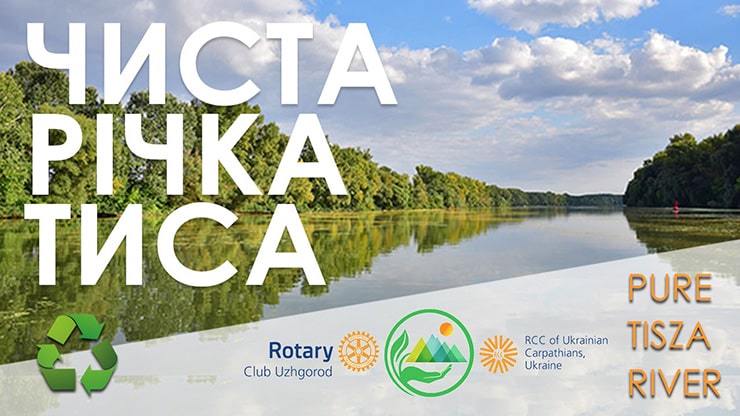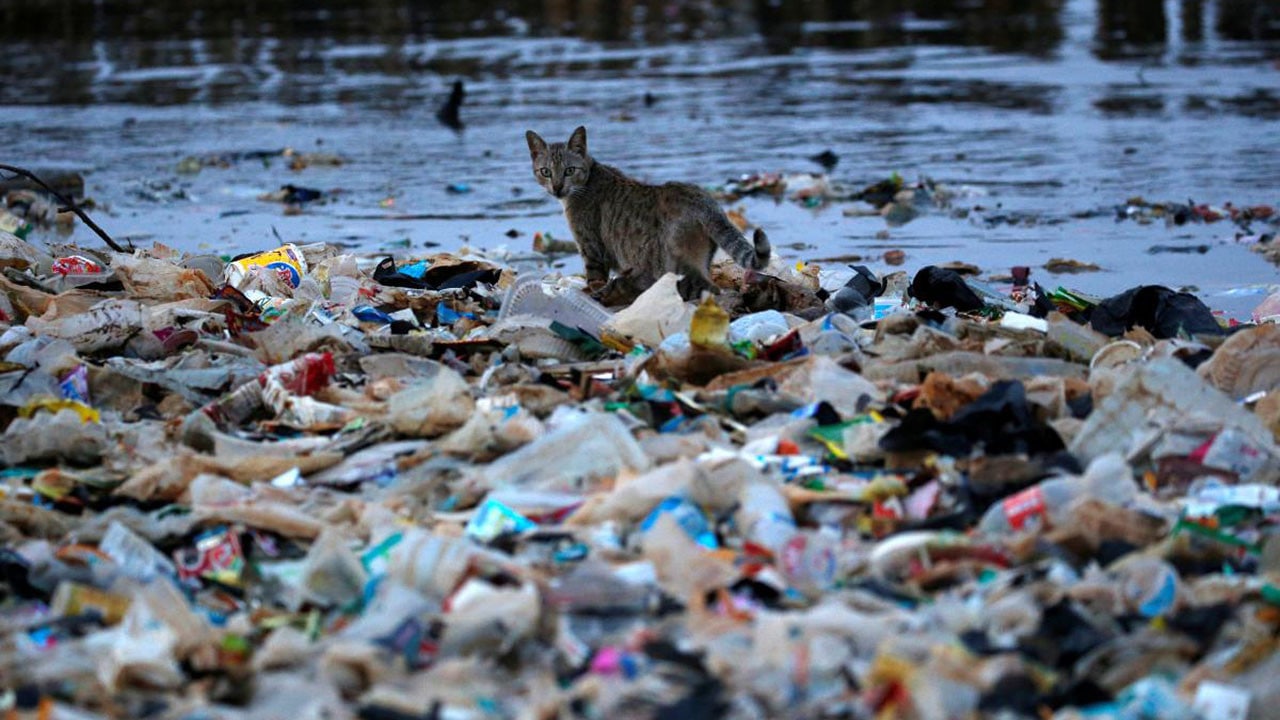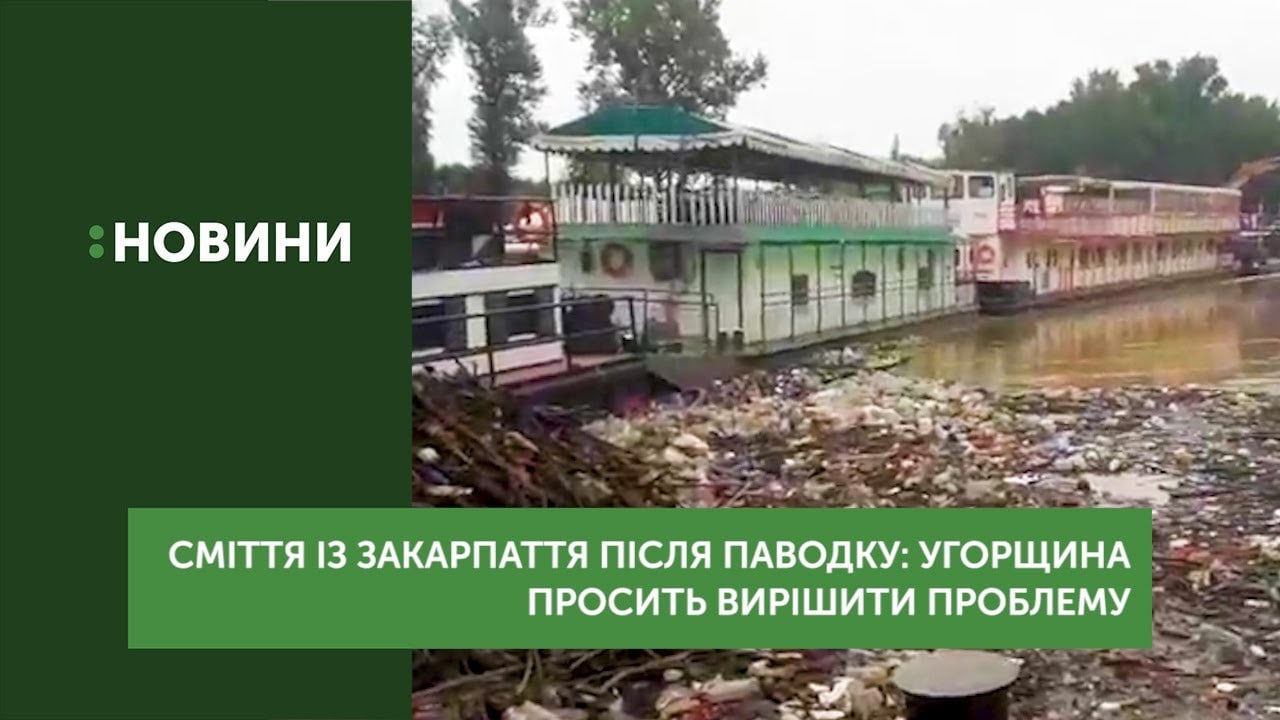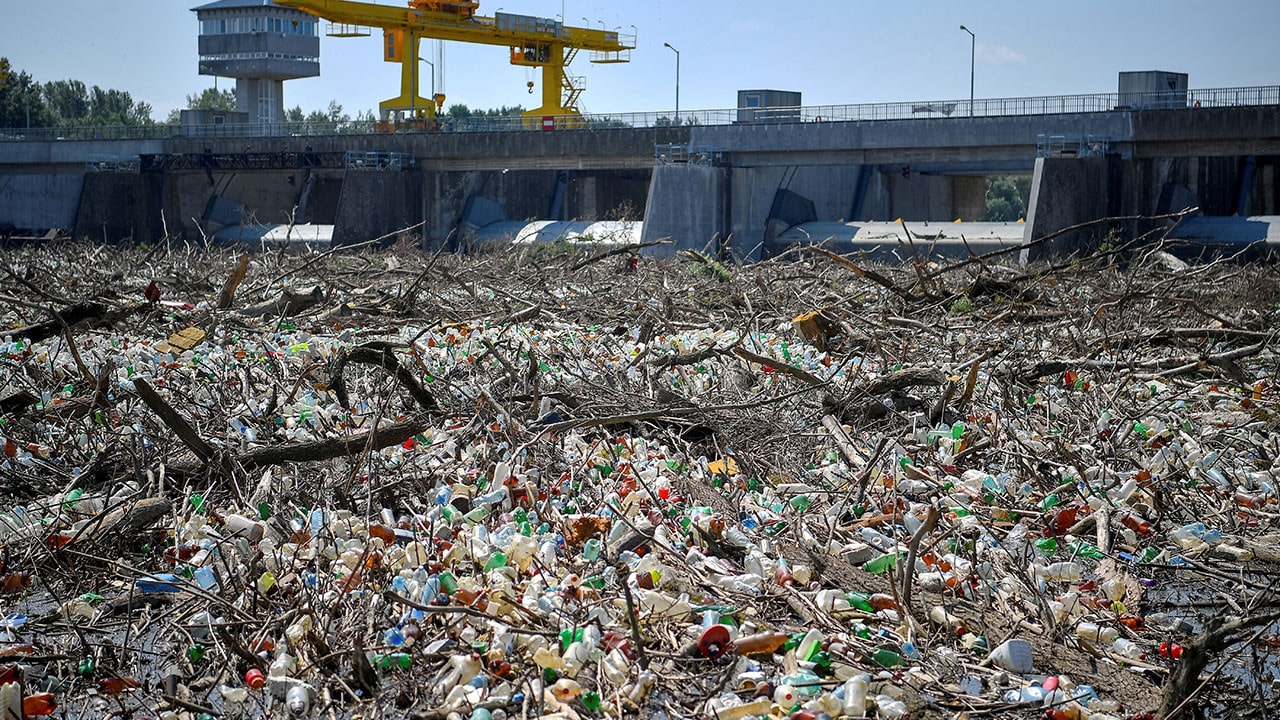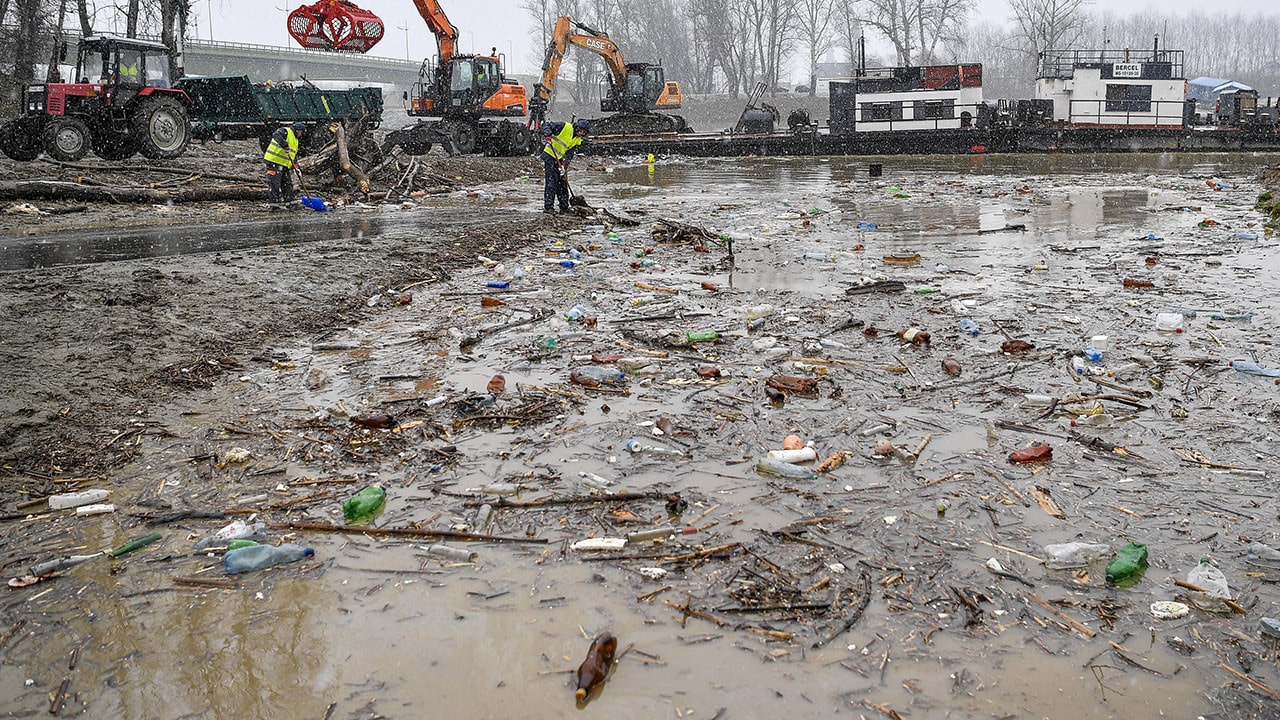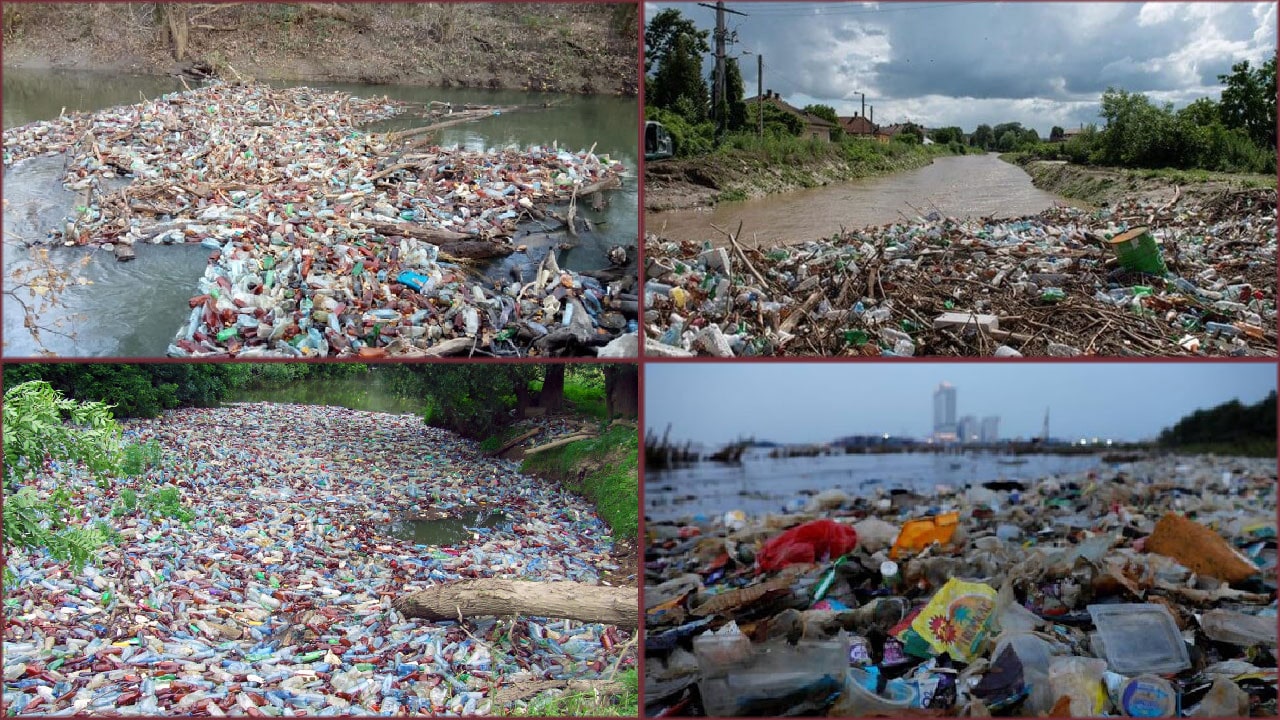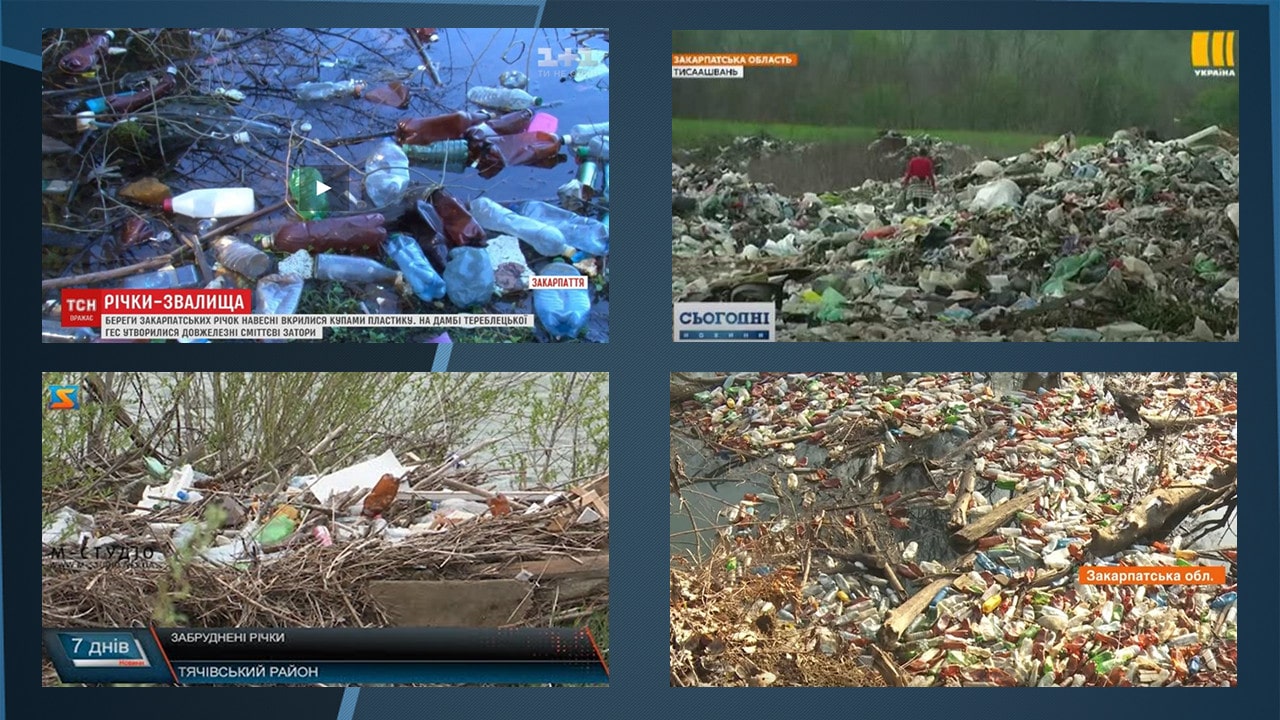1. Transcarpathia is one of the most well-supplied regions of Ukraine with water resources. Such important waterways of Europe feed from the Carpathian sources: Vistula, Danube, Tisza, Dniester and their numerous large and small tributaries. The Carpathians are the source of 80% of Romania's water resources and 40% of Ukraine's water resources are also from the Carpathians. But we have to state with concern that the Carpathians may lose their importance for Europe as a source of fresh water. Mountainous regions are the most vulnerable to the “garbage problem”. Garbage trucks, which usually run without problems in lowland villages, do not go to the mountains, where there are often no normal roads at all, and if there are, the cost of garbage removal from there reaches exorbitant prices. Because of this, the chairmen of mountain communities often turn a blind eye to illegal dumps, the burning of garbage by the villagers and throwing it into the river. It is the rivers, sadly as it may sound, that are the "main garbage chute" of the Ukrainian Carpathians.
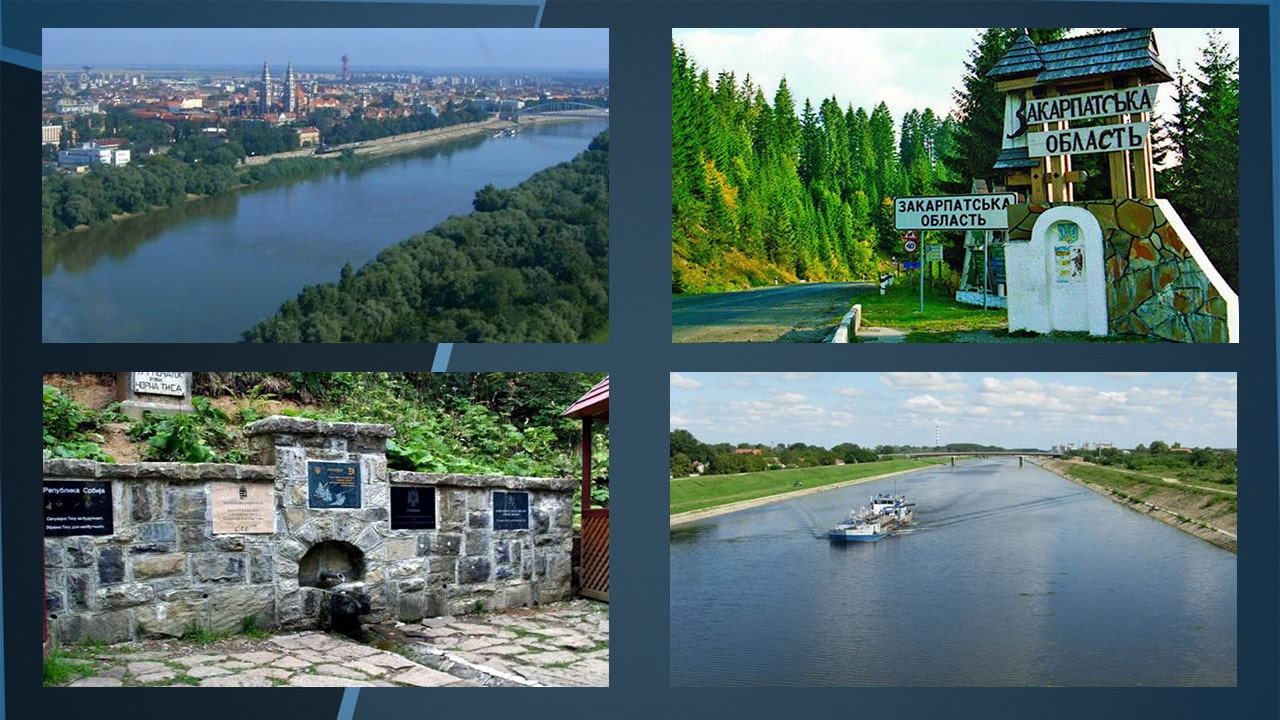
The Tisza River is the largest tributary of the Danube in terms of area and length, and the second, after the Sava, in terms of water content. The basin area is 157 186 km ². The length of the Tisa River is 966 km. The main part of the flow of the river. Tisza is formed on the territory of four states: Romania - 51%, Ukraine - 25.6%, Hungary - 10% and Slovakia - 13.4%. On the territory of Ukraine, the basin of the river. Tisa is completely located within one region - Transcarpathian. All rivers on the territory of Transcarpathia directly flow into the river. Yew, or to its tributaries. The area of the Transcarpathian region and, accordingly, the area of the Tisza sub-basin within Ukraine is about 12.8 thousand km. The Tisza River originates in the southeastern part of the Carpathians, formed by the confluence of the two rivers Black and White Tisza. After the confluence of these rivers above the city of Rakhiv, p. The Tisza flows in a narrow mountain valley in a southerly direction. Below p. Delovoe on the border with Romania, after the confluence from the left bank of the river. Visheu, the river flows in a narrow gorge in the north-western direction of the village. Great Bychkov. Despite the fact that on the territory of the Velikobychkovskaya UTC the Tisa river flows in each of 7 villages: the Apshitsa river is a right tributary of the Tisa with a length of 39 km and an area of 226 km2, the Shopurka river is a right tributary of the Tisa 41 km in length and a basin area of 283 km2; The Kisva-right tributary of the Tisza is 41 km long and the basin area is 157 km2, the project is the most urgent.
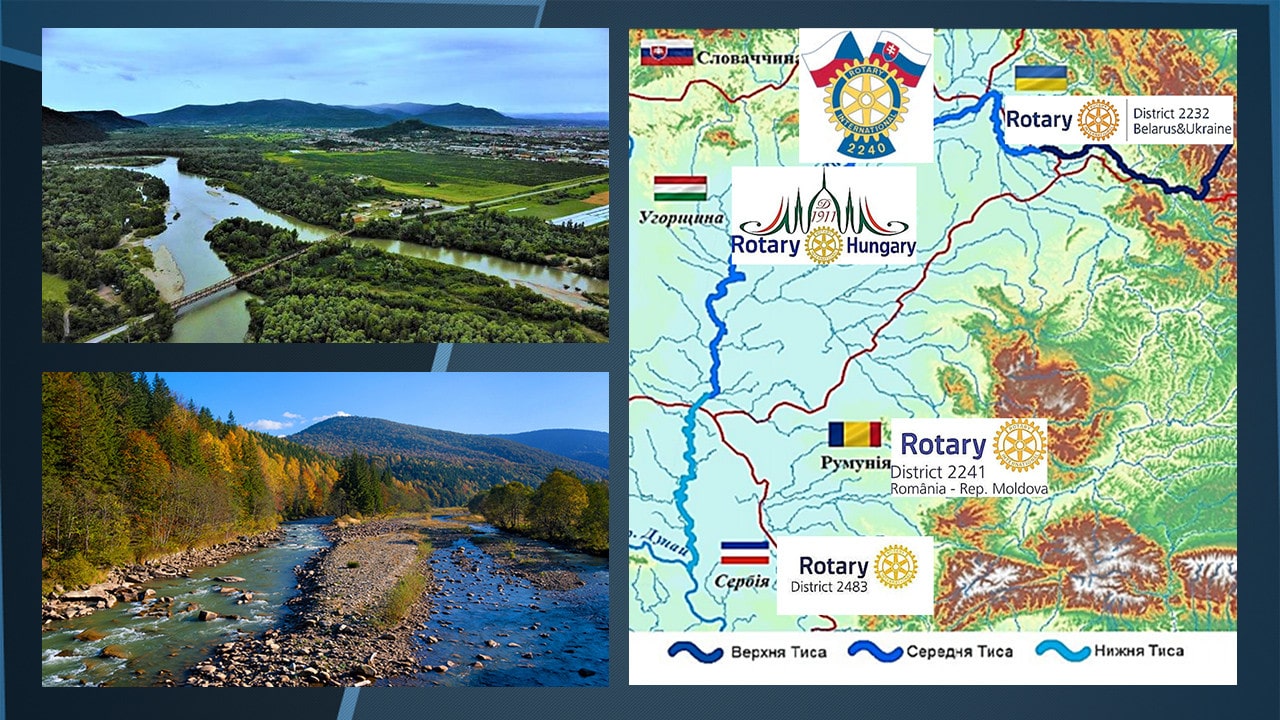
The project “Clean Tisza - the key to a happy future” (hereinafter referred to as the Project) is to clean up the banks of the Tisza River on the territory of Velikobychkovskaya UTC, Rakhiv district of the Transcarpathian region by introducing modern methods and technologies in the collection and processing (processing) of solid household waste generated on the territory of Velikobychkovskaya UTC. Namely: the method of separate collection of household waste using modern equipment for the processing (processing) of solid household waste (hereinafter - MSW) for their further transportation and disposal. The project plans to separate collection of plastic, paper, glass and mixed municipal solid waste. For each type of municipal solid waste, a separate container with a corresponding color will be installed at container sites. For plastic - yellow, for paper - blue, for glass - green and for organics - black.
Now solid household waste generated on the territory is buried in a landfill, which is already overflowing. The area has already been called "Garbage Hoverla" over 8m. heights, 300m. length and about 600m. width (link to article). The consequences of pollution of the Tisza River are obvious - this is the accumulation of organic matter and decay - water pollution and the death of fish and animals. The consequences of water pollution can be called dangerous and extensive. The list of diseases that can arise due to the use of poor-quality water is huge. It is not for nothing that they say that 80% of ailments a person "drinks" together with water. A plastic bottle, if not disposed of, can take several or even thousands of years to decompose. At the same time, it releases toxins that poison the environment. And also, through our irresponsibility, at least 10 generations will enjoy a huge plastic legacy.
Experts have calculated that Ukraine has transferred and continues to transfer Hungary up to 100 plastic bottles per minute. According to the Hungarian President, since mid-June alone, the Hungarians have received 938 cubic meters of garbage from the Tisza and 846 cubic meters of garbage from the Somes River. The Tisza, one of the main rivers of Eastern Europe, originates in Ukraine and flows through the whole of Hungary, after which it flows into the Danube in Serbia. The Somes River flows from Romania to Hungary and flows into the Tisza there (link to article). Some kind of garbage export to the European Union. After rains, the current from the mountainous regions of Transcarpathia carries cubic meters of plastic waste to the territory of Slovakia - up to 400 bottles per minute can cross the border (link to article). After all, if the garbage is not taken out of the village, then it is easier to throw it into the river. She quickly takes away everything that is no longer needed.
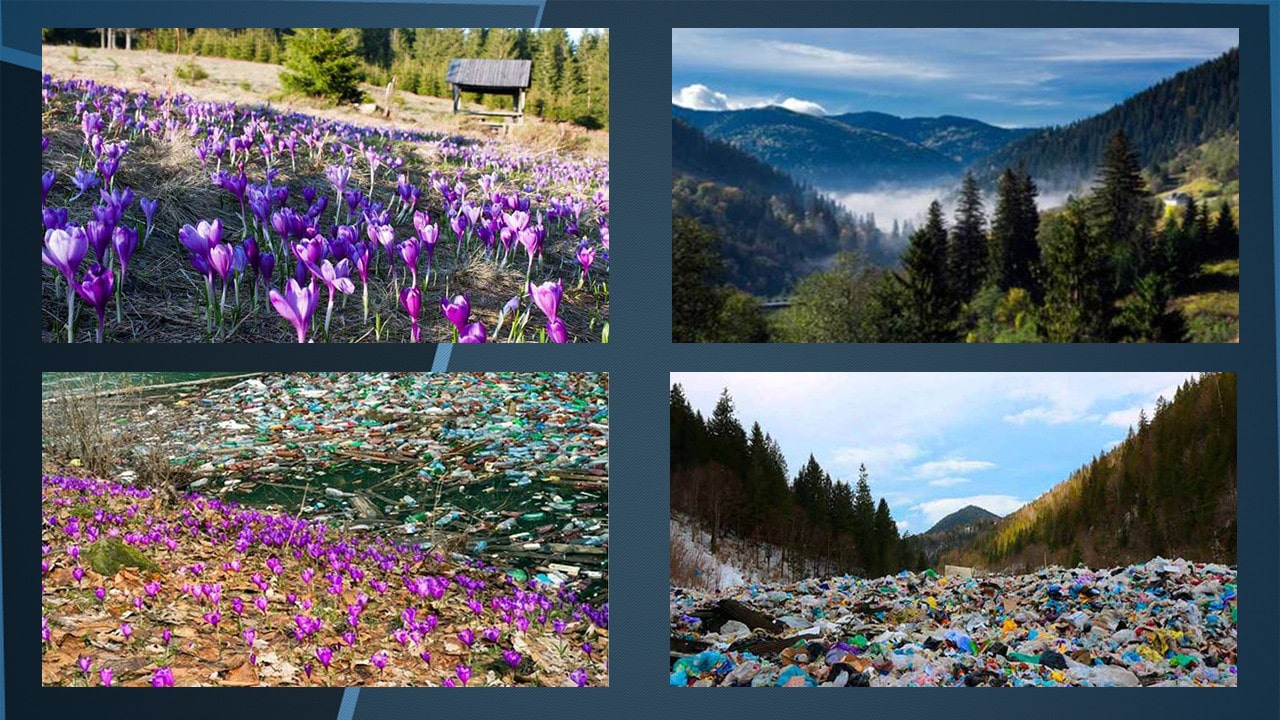
This project will benefit 100% of the population of the Veliky Bychkov United Territorial Community (UTC) consisting of 7 villages, namely: Veliky Bychkov (9 423 residents), Kobyletskaya Polyana (3490 residents), Verkhnee Vodyanoe (5 272 residents), Voditsa (1882 residents), Kosovskaya Polyana (4 222 inhabitants), Lug (1 985 inhabitants) and Rososhka (1240 inhabitants), and in total this amounts to 29.689 thousand of its inhabitants living on the territory of 574.2 square meters. km. (link to article)
2 Define the goals and objectives of the project.
The main goal of the project is to protect the environment in the Danube region, preserve the unique beauty of the picturesque Carpathians, and clean up the Tisza river. On the territory of the Velikobychkovsky UTC, involve the local population in sorting waste by reducing the disposal of solid household waste, which have a detrimental effect of the introduction of separate collection of solid waste and the introduction of processing (processing) and sorting of solid waste generated on the territory of the Velikobychkovsky UTC of the Transcarpathian region Conducting an information campaign by combining the efforts of Rotarians, local business, government and the public sector for 36 months and to overcome the so-called" garbage export to the European Union that on the territory of the region there are practically no such plan, waste processing plants.Ukraine, one of the countries of Europe, for which the problem of ecosystem pollution is extremely acute.Today, the systemic collection of waste covers only part of the territory of Transcarpathia. Mukachevo, the second largest city in the region, has specialized enterprises that somehow cope, in other regions they risk drowning in their own waste. The socio-economic orientation of the project will improve the living conditions of the population, because the state of the river directly depends on the the entire ecosystem of the region it, and the health of residents living in this territory, will reduce the negative impact of waste on human health, reduce the overuse of natural resources, open up new opportunities for realizing the social, economic and intellectual potential of society. An enterprise with permanent jobs will be created.
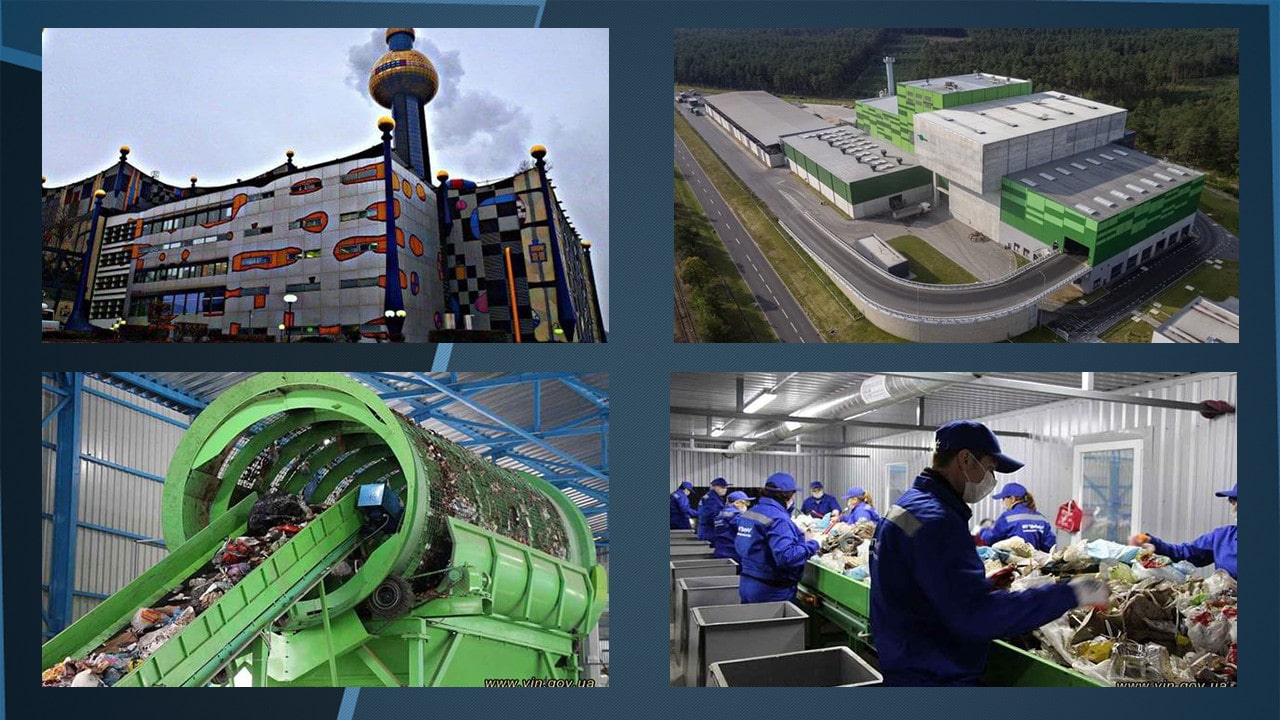
• The main tasks of the project are guided by the current Order of the Cabinet of Ministers dated November 08, 2017. No. 820-r "On approval of the National Waste Management Strategy in Ukraine until 2030" Guided by the current Order of the Cabinet of Ministers dated November 08, 2017. No. 820-r "On Approval of the National Waste Management Strategy in Ukraine until 2030 "(link to the law)
• The situation that has developed with the formation, accumulation, storage, processing, utilization and disposal of waste and is characterized by the further development of environmental threats. makes it necessary to create and ensure the proper functioning of a nationwide system for the prevention of waste generation, collection, processing and disposal, neutralization and safe disposal. This should be an urgent task even in conditions of relative limited economic opportunities, both by the state and by the main generators of waste.
• What do we offer:
- increasing the volume of collection, procurement, processing and disposal of waste as secondary raw materials, by establishing a waste collection system;
- to provide an optimal combination of forest plantations and meadows around water bodies.
- creation of a system of information support for the waste management sphere;
- improving the procedure for maintaining state accounting of waste, informing about the location of places or objects of waste management, their impact on the state of the environment and human health. The situation that has developed with the formation, accumulation, storage, processing, utilization and disposal of waste and is characterized by the further development of environmental threats, necessitates the creation and maintenance of the proper functioning of a nationwide system for the prevention of waste generation, collection, processing and disposal, neutralization and safe disposal. This should be an urgent task even in conditions of relative limited economic opportunities, both by the state and by the main generators of waste.
3 Project activities:
- I. Stage (initial 0-8 months)
- Exchange of experience with factories where the MSW processing process has already been successfully applied; (6 people for 10 days to the countries where the Tisza River flows (Hungary, Romania, Serbia, Slovakia, Vinnytsia OTG, Ukraine. The trip includes round trip, medical insurance, food, accommodation and other expenses, which total is $ 1500 / person, 10 days * 6 people ($ 90,000)
- Information preparation for the implementation of the project, the purchase of a car for travel by the expert commission, during which an explanatory campaign will be carried out among the population of territorial communities on the removal and expediency of separate collection of solid waste. Placing information on information stands. Attracting opinion leaders. Communication through the media and social networks. Creation and distribution of newsletters ($ 22,000)
- Determination of places for placing sites and containers for separate collection of solid waste, and sites for receiving recyclable materials, production of design estimates ($ 10,000)
- Conducting social and environmental actions in order to improve the environmental situation and restore the natural fund of the Ukrainian Carpathians.
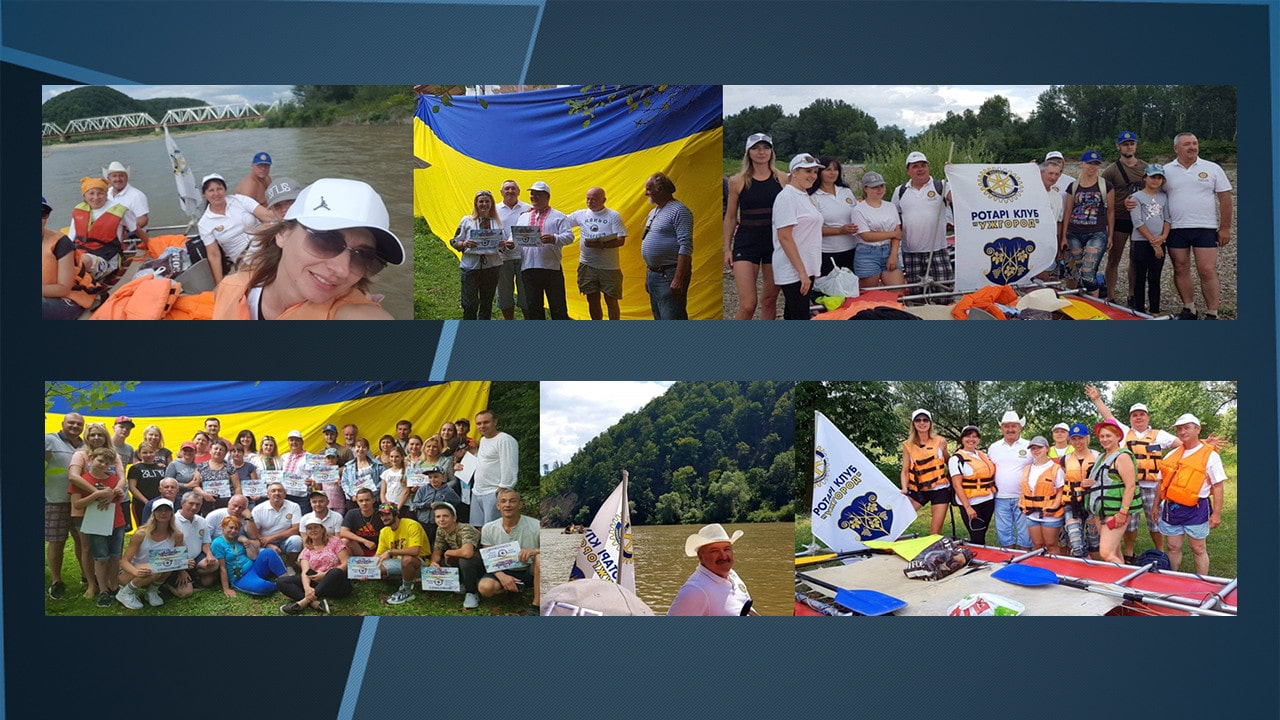
- II. Stage (main 8-36 months)
- Conducting tender procedures, as a result of which a contract for the purchase of a garbage truck ($ 90,000) and equipment for waste treatment (recycling) ($ 2,000) will be concluded
- Purchase of containers, equipment for the processing of solid waste; arrangement of sites with containers for separate collection and for receiving recyclable materials and proper recycling (in each of the 7 villages, three sites are planned where 4 garbage containers will be installed, in total, these are 84 containers (3 sites / village * 12 containers / village * 7sel = 84 pieces)
- The cost of one container is 5 600 UAH (link to the site) ($ 210 * at the NBU rate), 84 pcs. container * $ 210 = $ 17 640
- Arrangement of sites for containers for garbage (21 sites) $ 1 800./od = $ 37 800
- Arrangement of a platform, a hangar-type multifunctional canopy type "FastStore" where a reception of recyclable materials (20m * 49m) with all permits- ($ 74,000) will be installed
- ІІІ. Stage (final)
- Installation of equipment for processing (processing) waste collected by a separate method;
- Commissioning of the purchased machinery and equipment;
- Report on the successful implementation of the project.
- 4. Information component.
- Information on the implementation of the project is planned by posting on a social network, which will highlight the name of the project, the goal and indicators in the form of an information campaign on the problem of solid waste and ways to solve it, the organization of sorting, removal, partial processing of waste and the sale of recyclable materials in the communities, the number of organizations involved , structures, institutions and participants in general. Conducting contests for thematic gifts and lighting a photo report of participants in the form of a flash mob in order to feel like they are involved in a common cause.
- 5. Expected results.
• Prospective consequences of the project:
- The project will have an impact both on the territory of the Transcarpathian region and on the neighboring countries that are EU members that suffer from the waste brought by the Tisza river, namely Hungary, Romania, Slovakia and Serbia. Especially Hungary, which each time suffers in tons of plastic and suffers huge losses from both the environment and the economy.
- The ecological state of the environment and the living conditions of the inhabitants of Transcarpathia will improve. Transcarpathia will be able to restore its natural potential as a picturesque corner of Ukraine.
- An effective modern model of solid waste management will be worked out, which will be an example for other organizations in the future.
- A communal enterprise will be created, which will provide services to the population on the collection and removal of solid waste, recyclable materials, assistance in the processing of organic waste in places, provide other services necessary for people, and conduct awareness-raising campaigns on an ongoing basis.
- The ecological culture of the population will increase, the community will become conscious of the role of its behavior in improving and maintaining a good quality of the environment, it will rally by the common overcoming of problems, and relations between the government and society will be harmonized.
- School youth will receive the necessary knowledge of ecology, basic knowledge of waste management, skills of advocacy for environmental work.
- Contributes to the education of human ecological culture and awareness of the population, the formation of ecological thinking in the field of economical consumption of natural resources and the impact of solid waste on the environment.
- will increase moral responsibility for an unfair attitude towards nature;
- will reduce the risks of morbidity among residents of the region;
- will create new jobs;
- will create a new type of business activity and, as a result, will make it possible to make money on the disposal of solid waste and will lay the foundation for the creation of an effective, efficient and environmentally oriented waste management system, which will allow in the future to minimize the harmful impact on the environment from solid household waste in the Carpathian region;
- Successful implementation of the project will open the way for the implementation of other projects aimed at the development of society.
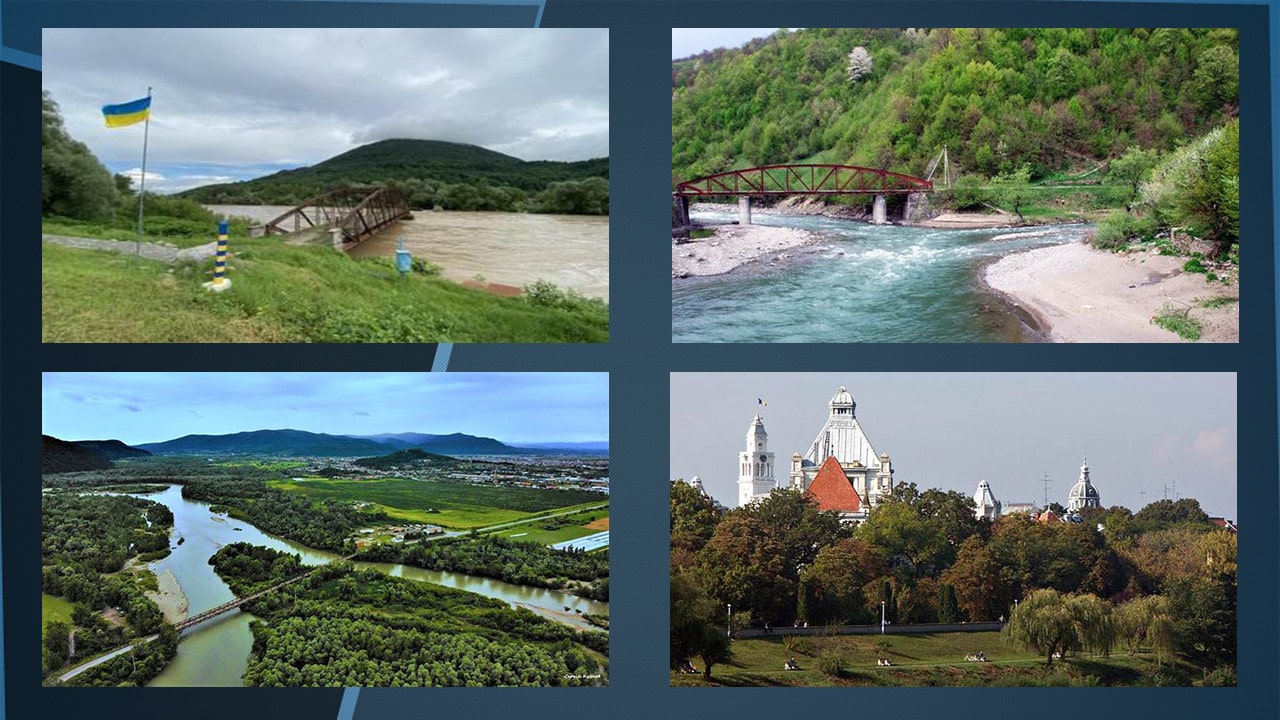
• Target groups of the project:
- Residents of Ukraine and the states with which it borders. Residents of the Transcarpathian region, in particular residents of the high-mountainous Rakhiv region, Velikobychkovskaya OTG, suburban villages involved in the project.
- Local government bodies.
- Private entrepreneurs of villages, employees of retail chain enterprises, collectives of social institutions, social activists.
- School youth of the community of other village councils.
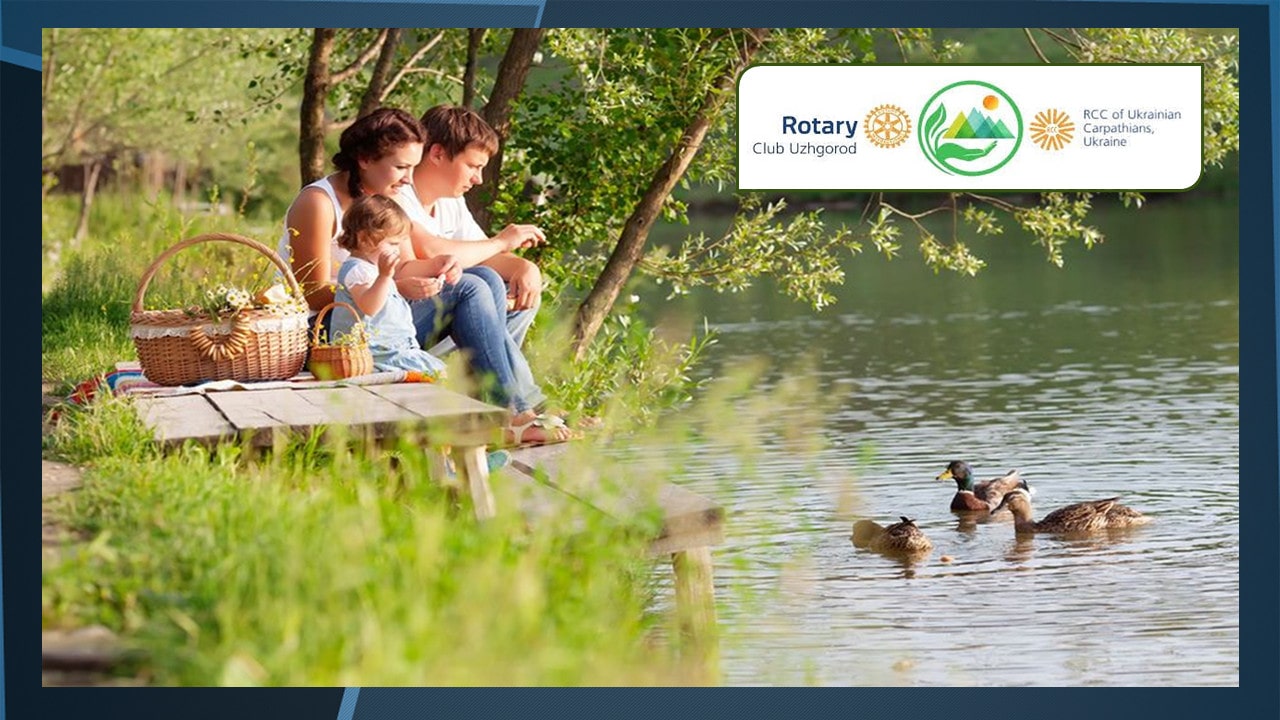
Sources:
2) seeds.org.ua

